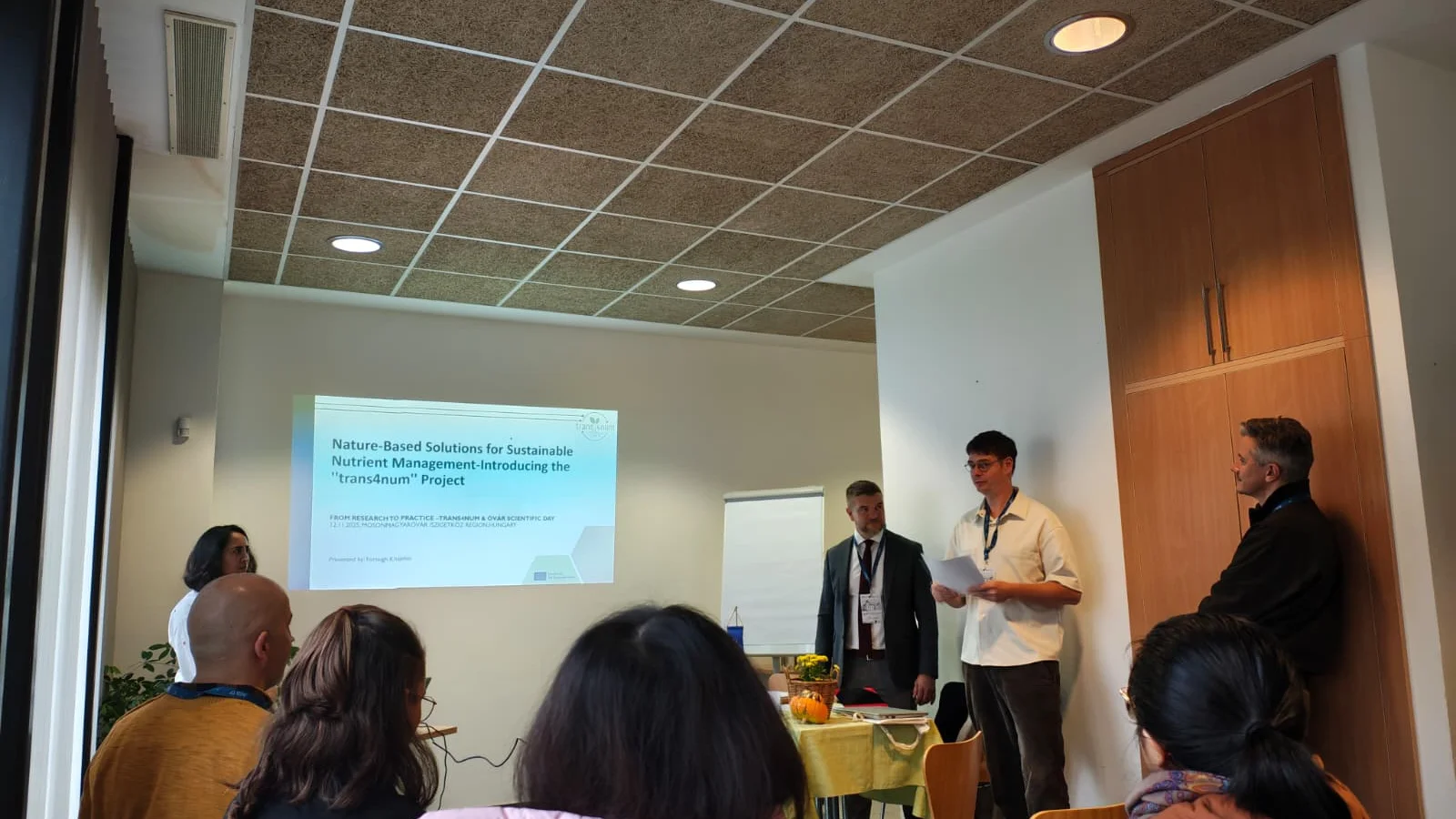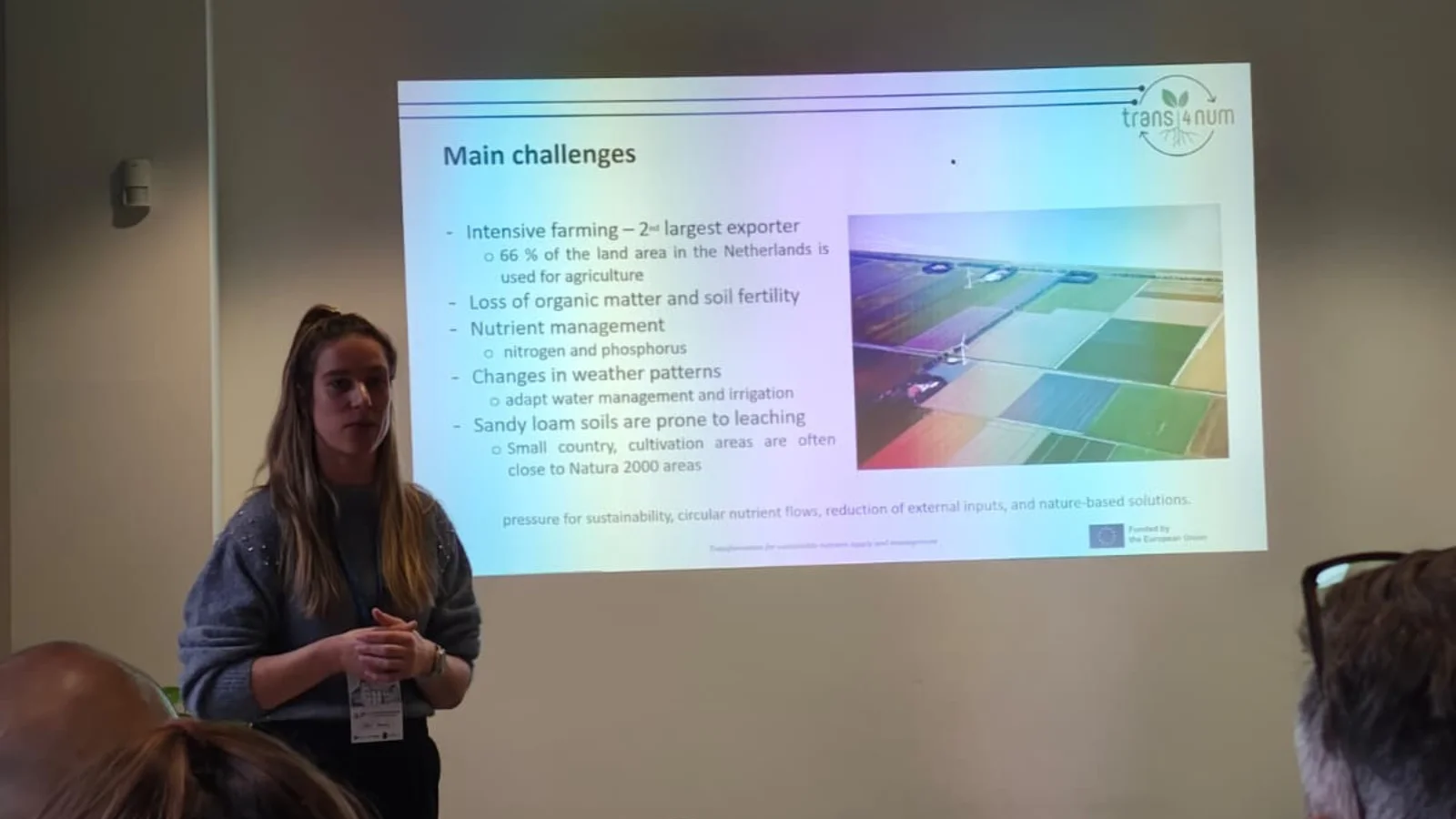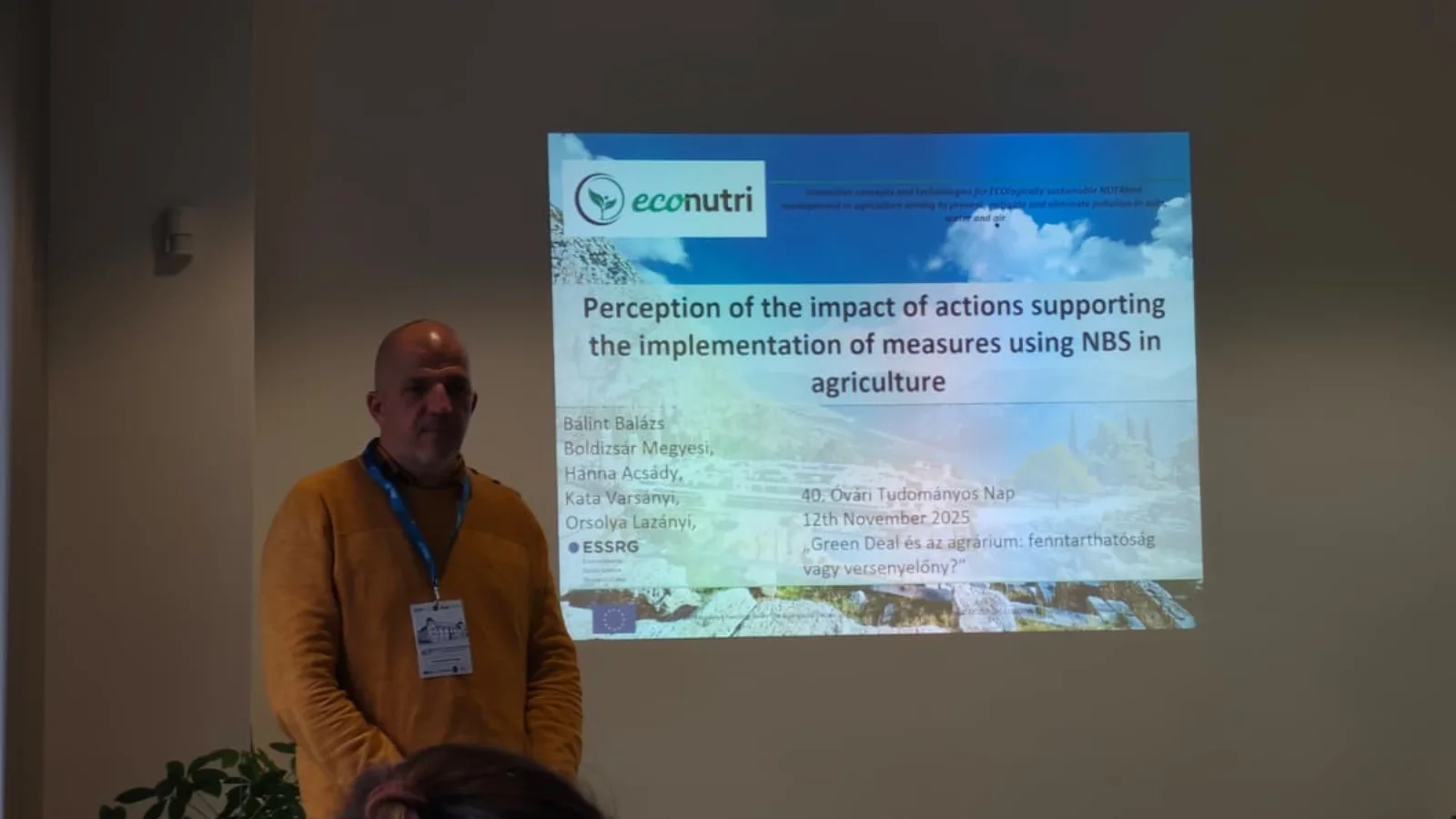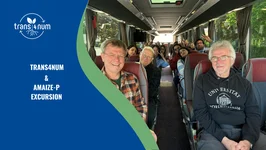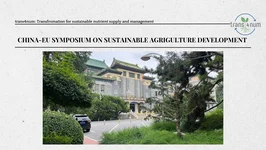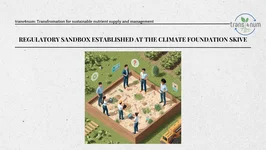| Communication team
On 12 November 2025, trans4num joined researchers, practitioners, and policymakers in Mosonmagyaróvár, Hungary, for the 40th Óvár Scientific Day International Conference, hosted by our partners at Széchenyi István University. This year’s theme “Green Deal and agriculture: sustainability or competitive advantage?” provided the perfect backdrop for discussing how European farming systems can accelerate the transition to nature-based, circular nutrient management.
The conference explored how the EU Green Deal is reshaping European agriculture, with sessions dedicated to soil science, nutrient management, digital innovation, food systems, and policy transformation. Internationally recognised speakers and researchers contributed to a rich exchange on how sustainability and competitiveness can reinforce rather than oppose each other.
A Dedicated trans4num Session: From Challenges to Solutions
trans4num had a strong presence through a focused scientific session that brought together partners from across Europe to present ongoing research and field-level innovations:
Introducing trans4num’s vision
Forough Khajehei opened the session with an overview of the project’s core challenges and transformation pathways. Her presentation highlighted the need to rebalance nutrient flows through nature-based solutions, rom bio-based fertilisers to perennial rotations, and showcased promising examples from Denmark, where perennial grass–clover systems and green biorefinery value chains are being tested at landscape scale.
Field insights from the Netherlands
Paula Harkes and Inês Amorim Leitão presented results from three years of research at the SPNA Kollumerwaard site. Their work compares conventional, organic, and NBS-driven soil management practices, including cut-and-carry fertilisation and green manure, to assess impacts on soil health, nutrient availability, and seed potato yields. Early findings show that while short-term differences are limited, NBS provide comparable soil conditions with lower external inputs, laying the groundwork for longer-term resilience.
Sister project Econutri: European perspectives on NBS
Bringing a broader policy and innovation lens, our sister project Econutrishared insights from an expert e-Delphi study across 25+ countries. The results point to significant potential for NBS in sustainable nutrient management but highlight key needs: clearer definitions, stronger funding instruments, better monitoring frameworks, and deeper integration of social and cultural dimensions in policy design.
Hands-on Testing with Hungarian Farmers and Advisors
The day concluded with an interactive workshop engaging Hungarian farmers and farm advisors in testing the trans4num Decision Support Tool (DST). Participants explored how the tool can help optimise nutrient management at farm level by integrating soil, crop, and environmental indicators. Their feedback will directly inform improvements in usability, data needs, and advisory relevance.
Looking Ahead
Our participation in the Óvár Scientific Day underscores trans4num’s commitment to connecting science, practice, and policy. As Europe works toward greener, more resilient food systems, events like these play a critical role in co-creating solutions that work for farmers, ecosystems, and rural communities alike.
We extend our thanks to Széchenyi István University for hosting an inspiring and well-organised event and to all contributors who shared their expertise and insights.
Stay tuned for more updates on trans4num’s field results, tools, and transformation pathways.

